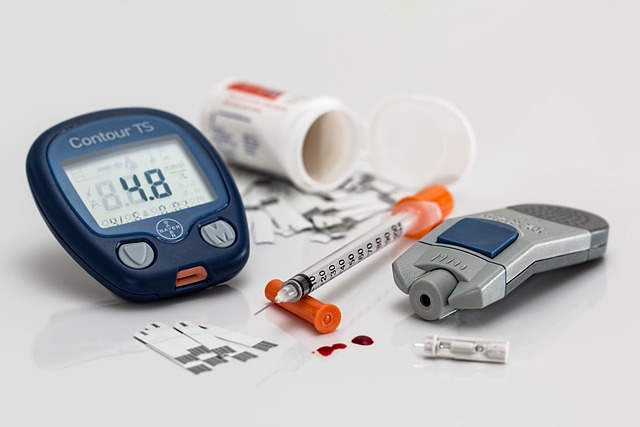Learn About What High Creatinine Blood Levels Mean For Older Adults - A Complete Guide
High creatinine blood levels in older adults can signal important changes in kidney function that require careful attention and monitoring. As we age, our kidneys naturally experience some decline in filtering capacity, making creatinine measurements particularly valuable for assessing overall health. Understanding what elevated creatinine levels mean, their causes, and when to seek medical attention empowers older adults and their families to make informed decisions about kidney health management.

What High Creatinine Blood Levels Mean For Older Adults
Creatinine is a waste product created when muscles break down creatine, a compound that provides energy for muscle contractions. Healthy kidneys filter creatinine from the blood and eliminate it through urine. When creatinine levels rise above normal ranges, it typically indicates that the kidneys are not filtering waste products as effectively as they should.
For older adults, normal creatinine levels generally range from 0.6 to 1.2 milligrams per deciliter of blood, though these ranges can vary based on factors like muscle mass, gender, and overall health status. Elevated levels may suggest reduced kidney function, which can range from mild impairment to more serious kidney disease. However, age-related changes in muscle mass and kidney function mean that interpreting creatinine levels in older adults requires careful consideration of individual circumstances.
What Causes High Creatinine Levels in Older Adults
Several factors can contribute to elevated creatinine levels in older adults, ranging from natural aging processes to underlying health conditions. Age-related kidney changes occur gradually, with kidney function typically declining by about one percent per year after age 40. This natural decline can lead to modest increases in creatinine levels over time.
Chronic conditions common in older adults frequently impact kidney function. Diabetes can damage kidney blood vessels over time, reducing their filtering ability. High blood pressure puts additional strain on kidney blood vessels, potentially leading to decreased function. Heart disease can reduce blood flow to the kidneys, affecting their ability to filter waste products effectively.
Dehydration represents another significant factor, as inadequate fluid intake can concentrate waste products in the blood, temporarily raising creatinine levels. Certain health conditions like urinary tract obstructions, severe infections, or autoimmune disorders can also contribute to elevated readings.
How Is Kidney Function Assessed in Older Adults
Healthcare providers use multiple methods to evaluate kidney function in older adults, with creatinine-based measurements serving as primary assessment tools. The serum creatinine test measures the amount of creatinine in blood, providing a baseline measurement of kidney filtering capacity.
The estimated glomerular filtration rate, commonly called eGFR, offers a more comprehensive assessment by considering creatinine levels alongside factors like age, gender, and race. This calculation provides a clearer picture of how well kidneys are filtering waste products. For older adults, eGFR values above 60 typically indicate adequate kidney function, while values below 60 may suggest chronic kidney disease.
Additional tests may include urine analysis to check for protein or blood in urine, blood urea nitrogen measurements, and imaging studies if structural problems are suspected. Healthcare providers often track these measurements over time to identify trends and changes in kidney function rather than relying on single test results.
When Should You Be Concerned About High Creatinine
Understanding when elevated creatinine levels warrant concern helps older adults recognize situations requiring medical attention. Sudden increases in creatinine levels, particularly those occurring over days or weeks, may indicate acute kidney problems requiring immediate evaluation. Gradual increases over months or years might reflect chronic conditions that need ongoing management.
Healthcare providers typically become concerned when creatinine levels consistently exceed normal ranges or when eGFR calculations indicate significant kidney function decline. Symptoms accompanying elevated creatinine levels, such as decreased urination, swelling in legs or ankles, persistent fatigue, or difficulty concentrating, may signal more serious kidney problems.
Regular monitoring becomes particularly important for older adults with diabetes, high blood pressure, heart disease, or family histories of kidney problems. These individuals may need more frequent creatinine testing to detect changes early and implement appropriate interventions to protect remaining kidney function.
High creatinine blood levels in older adults represent an important health indicator that requires careful interpretation within the context of individual circumstances. While some elevation may reflect normal aging processes, significant increases can signal underlying conditions requiring medical attention. Understanding the causes of elevated creatinine levels, how kidney function is assessed, and when to seek medical care empowers older adults to actively participate in maintaining their kidney health. Regular communication with healthcare providers, combined with awareness of symptoms and risk factors, helps ensure that kidney problems are identified and addressed promptly, supporting better long-term health outcomes.
This article is for informational purposes only and should not be considered medical advice. Please consult a qualified healthcare professional for personalized guidance and treatment.




